What good is an iPhone without apps? Or an iPad without movies? Not much good at all really, as many users have discovered when their device says it “Cannot connect to App Store” or “Cannot connect to iTunes Store.” If that’s happened to you, this post has all the information you need to fix it.
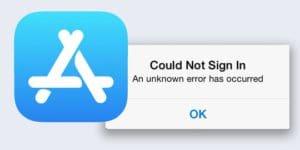
When any Apple device — from iPods to Apple TVs — can’t connect to a store you won’t be able to buy, download, update or even browse apps and media.
These connection issues also affect other Apple services like the iBooks Store, iCloud, or even Apple Pay. When this happens there are several different alert notifications you might receive:
“Cannot connect to iTunes Store”
“Cannot connect to App Store”
“Could not complete iTunes Store request”
“iTunes Store is temporarily unavailable”
“There was an error in the iTunes Store”
“An unknown error has occurred”
“Please try again later”
and many other similar alerts.
Contents
- 1 Why does it keep saying “Cannot connect to iTunes store”?
- 2 How do I connect to the iTunes Store or App store?
- 3 Close down every app and restart your device
- 4 Check your internet connection is working
- 5 Take a look at Apple’s system status website
- 6 Sign out of everything on your device, then sign in again
- 7 Turn off any content and privacy restrictions
- 8 Make sure the store is available in your region
- 9 Remove beta or testing profiles from your device
- 10 Update your device to the latest software
- 11 Five tips from our Readers
- 12 Finally: Reset or restore your device
- 13 Contact Apple Support
Related:
- Daily Q & A: My iPad can’t connect to iTunes Store / App Store? How do I resolve this?
- App Store: “An unknown error has occurred”; can’t connect to the App Store
- iTunes not working?
Why does it keep saying “Cannot connect to iTunes store”?
Your Apple device regularly reaches out to iTunes or the App Store to download media, check for updates, or refresh background content.
If that connection fails, for any number of potential reasons, you’ll be alerted with a message.
Apple devices, like an iPhone or iPad, cannot connect to the App Store or iTunes Store without an internet connection.
They may also be hindered by system maintenance, account inconsistencies, or other software bugs.
How do I connect to the iTunes Store or App store?
If you cannot connect to the iTunes Store on iPhone, iPad, Mac, or any other Apple device the troubleshooting tips in this post will help.
They can resolve connection problems caused by common software bugs, sign in errors, or issues with your device settings. They will also alert you to any system downtime.
Try each of the troubleshooting tips outlined below. They will help you to reconnect to the iTunes Store or App Store. Make sure to try connecting again after each step.
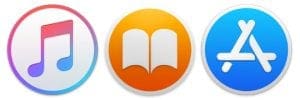
Close down every app and restart your device
Double-click the home button or swipe up on an iOS device to close all the apps running in the background. Doing this stops frozen or malfunctioning apps from taking up processing power and allows the store to operate as usual.
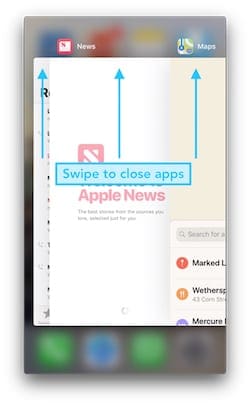
After closing every app, press and hold the Sleep/Wake or power button until you see the option to power off your device. Wait 30 seconds before you power it on again.
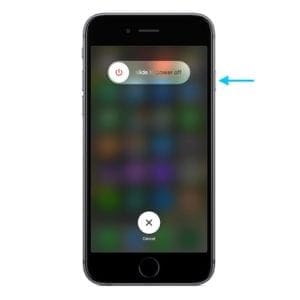
Check your internet connection is working
Your iPhone or iPad cannot connect to the App Store or iTunes if your internet has stopped working.
Test your connection by loading a new webpage or streaming an online video. If it’s slow to load, restart your router or contact your Internet Service Provider.
They can provide further troubleshooting instructions.
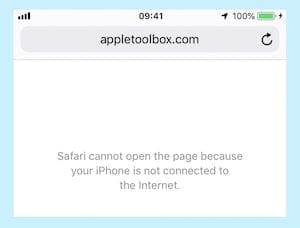
If you usually connect over Wi-Fi try using cellular data instead, and vice versa.
Ensure that cellular data is switched on for iTunes or the App Store in your Cellular settings, then turn off Wi-Fi and open the store again.
Take a look at Apple’s system status website
There’s a chance the store you’re trying to access is down for maintenance or that Apple is experiencing problems with it. You can check this by visiting Apple’s system status website.
Look at services like the App Store, Apple ID, Mac App Store, iCloud, and iTunes Store.
Anything other than a green circle next to it means Apple is experiencing problems. Unfortunately, if this is the case, there’s nothing you can do except wait for Apple to resolve it at their end.
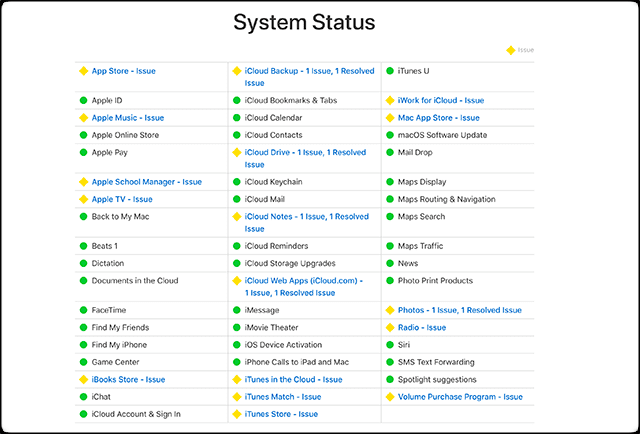
Sign out of everything on your device, then sign in again
An issue with your Apple ID could be causing problems with the App Store or iTunes Store. Follow the steps below to sign out of everything on your iOS device, then restart it and sign in again.
- Go to Settings > [Your Name] > Sign Out.
- Enter your Apple ID password and choose whether to keep a copy of iCloud data on your device.
- This signs you out of everything on your Apple device: iTunes, App Store, iCloud, etc.
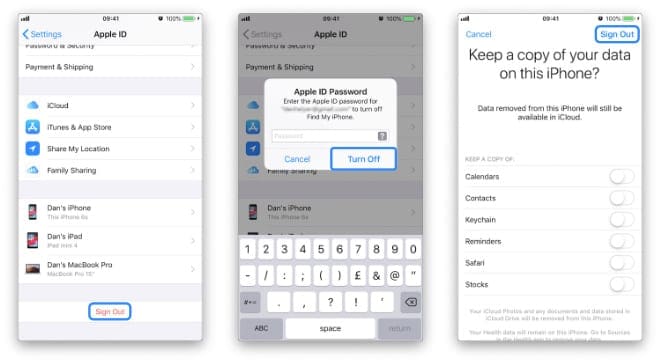
Go to [Your Name] > Sign Out in your device Settings to log out of Apple ID - Restart your device using the Sleep/Wake or power button, then return to the Settings to sign in to your Apple ID once again.
Some readers report they had to do this step twice before it worked.
Turn off any content and privacy restrictions
There might be content and privacy restrictions on your device that block access to apps and other media.
Therefore, you should check your restrictions
- Go to Settings > Screen Time > Content & Privacy Restrictions
- You may need to enter a Screen Time passcode to do so, here’s what you can do if you’ve lost it.
Check the following places in your restrictions to ensure they aren’t interfering with App Store or iTunes access:
- iTunes & App Store Purchases
- Allowed Apps
- Content Restrictions
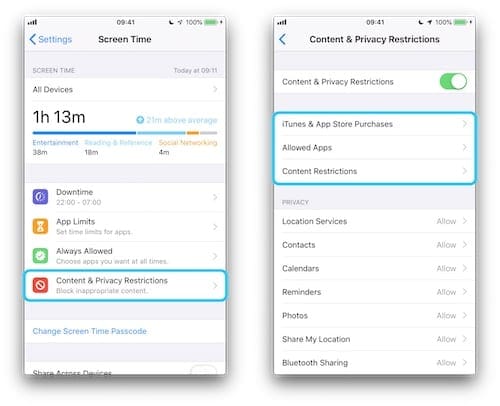
Make sure the store is available in your region
Although Apple is about as international as a brand can get, their content isn’t available everywhere.
Visit Apple’s availability website to check that the country or region you’re in has access to all of Apple’s stores.
If your country isn’t listed, that the reason your iPhone or iPad cannot connect to the App Store or iTunes.
Turn off your VPN if you have one as it could be causing the store to think you’re in a country without full availability.
Similarly, if you are in a country without availability, try using a VPN to convince the store you’re somewhere else!
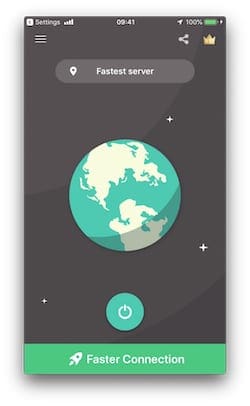
Remove beta or testing profiles from your device
If you’ve ever signed up for a software beta program, you probably had to install a special profile onto your device.
Some users are also required to do this for their jobs. Removing these configuration profiles just in case they’re interfering with the App Store or iTunes Store.
You can remove profiles on iOS by going to Settings > General > Profiles. If there isn’t a Profiles option, then you don’t have any installed.
On macOS, open the System Preferences and select View > Profiles. Like before, if there isn’t a Profiles option that means you don’t have any installed.
However, be warned!
Removing work-related profiles might mean you’re unable to access secure servers needed for your work. You should check with your employer’s IT department first.
Update your device to the latest software
There could be a bug in your OS that is causing problems with the iTunes Store or App Store.
When this happens, Apple will release a patch update that fixes the issue. Similarly, if you’re running a much older version of iOS or OS X/macOS, you’re likely to encounter more problems as Apple doesn’t maintain or update anymore.
Check for new software updates in the Settings or System Preferences on your device. Be sure to download and install any updates that you find.
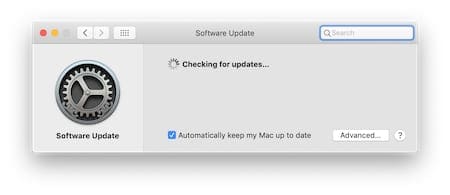
Five tips from our Readers
Sometimes logic isn’t the best tool when troubleshooting software problems. Below, we’ve listed five tips from AppleToolBox readers that defy all logic but appear to be effective solutions.
They’ve each been shown to resolve connection issues with the iTunes Store or App Store. Be sure to try each tip before moving on to our final solution at the bottom.
1. Change your date and time to a different year
Apple suggests checking the date and time is correct on your device. You can do this by going to Date & Time in Settings and turning on Set Automatically, then restart your device and try the store again.
However, in the past, users have found success in turning Set Automatically off and setting a wildly incorrect date or time.
For instance, when our readers couldn’t connect to the App Store in 2012, they found a solution by changing the year to 2019.
We suggest changing your date to an extreme or random year and trying to access the store again.
If it works, you should be able to set your device back to the correct date afterward while still being connected to the store.
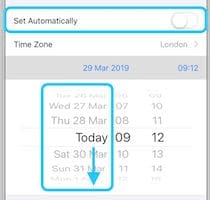
2. Turn on automatic downloads for everything
Set your device to automatically download updates and content from iTunes or the App Store.
Go to Settings > iTunes & App Store and then turn on every option beneath Automatic Downloads.
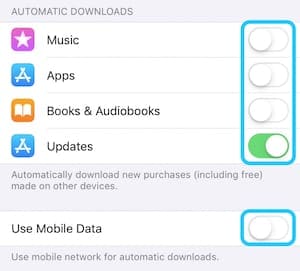
You could also turn on the Use Mobile Data option, however doing so could incur large fees from your cell provider if you exceed your data allowance.
3. Change the App Store password to Always Required
Setting the App Store password option to Always Required means you’ll need to input your Apple ID password every time you download an app.
Changing this setting seems to have resolved App Store connection issues for multiple users.
On an iOS device, go to Settings > Screen Time > Content & Privacy Restrictions > iTunes & App Store Purchases.
Under the Require Password heading, select Always Required.
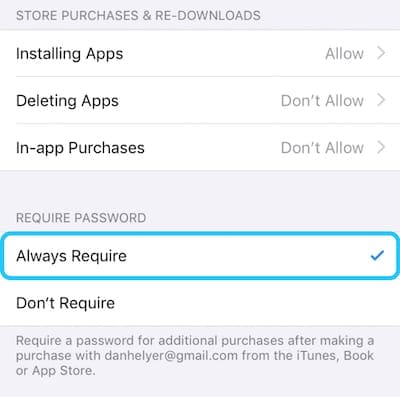
4. Remove every device from your Apple ID account
Log on to the Apple ID website using your credentials and scroll to the devices section.
This area shows every device signed in to your Apple ID, potentially including older unused devices.
Remove everything from the list, then manually sign back into Apple ID on each device and try the store again.
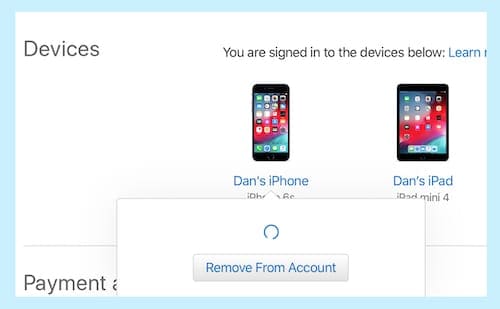
5 Change your DNS
Follow our instructions to change the DNS on your Apple device.
Not only could this allow you to access the App Store and iTunes Store again, but it might also speed up Safari and other internet applications!
Finally: Reset or restore your device
If you still cannot connect to the iTunes Store on iPhone, it’s time to reset some of the settings on your device or restore the device entirely.
Try to connect to the App Store or the iTunes Store after resetting each of the options below.
Reset Network Settings
Start by resetting the network settings on your device. That means your device will forget any saved Wi-Fi passwords or preferred connections.
However, other than that you shouldn’t notice any difference.
Go to Settings > General > Reset > Reset Network Settings.
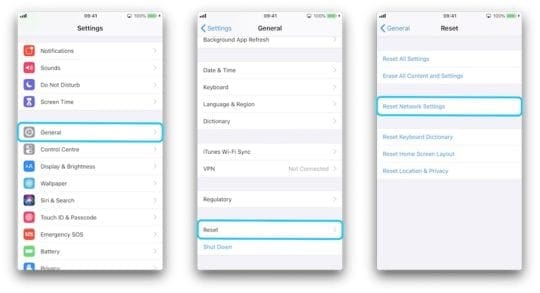
Reset All Settings
Resetting all the settings on your device won’t delete any content like photos or apps. But it will set your preferences back to their default state.
That means things like moving apps back to their original position or changing your notification settings.
Go to Settings > General > Reset > Reset All Settings.
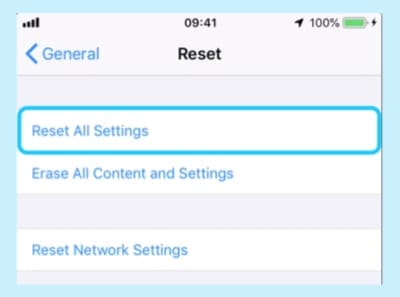
After the reset is complete, you’ll want to spend a few minutes going through your device settings to put everything back to normal.
Restore your device using DFU mode
The final option is to completely erase your device and return it to its default state. That means you need to make a backup of all your content before going any further.

DFU mode is the most complete way to restore your device as it also reinstalls software and firmware. Follow this guide to complete a restore using DFU mode.
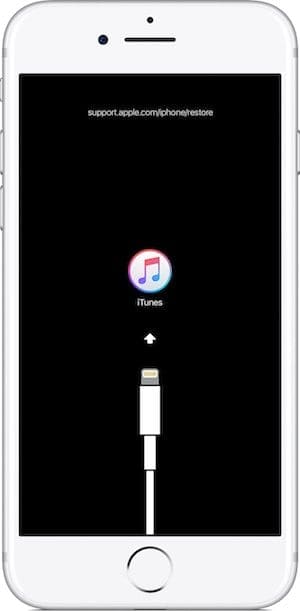
Please leave a comment telling us which troubleshooting step worked for you.
Contact Apple Support 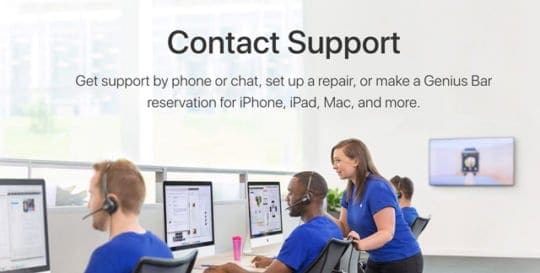
Or if your iPhone or iPad cannot connect to the App Store still, chat with Apple, set up an appointment with your local Apple Store Genius, or use this link to speak to Apple directly for more help.